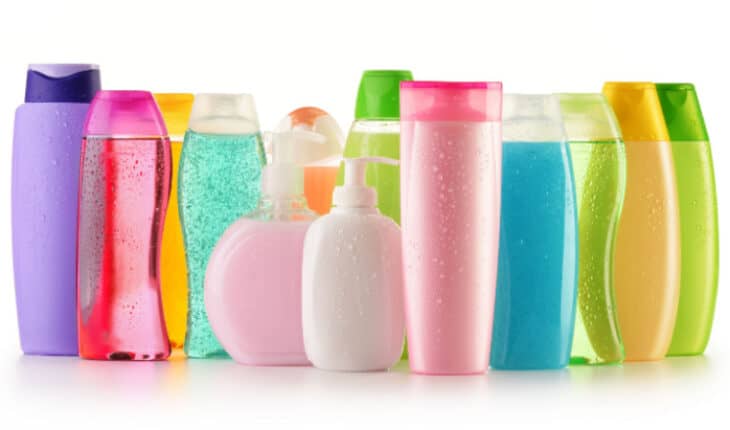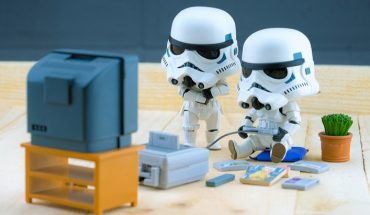Taking the moisture out of moisturiser: Researchers at the University of East Anglia have developed a new technology that turns beauty products like moisturiser into a dry piece of confetti-like ‘paper’.
The breakthrough means that 98 per cent of the water in products like moisturiser, sun-cream, shampoo and conditioner can be removed.
Users simply need to add a drop of water to the paper-like disc to rehydrate it instantly.
It could revolutionise the beauty industry by dramatically reducing both its carbon footprint and packaging waste.
The new technology also removes the need for preservatives in these products and improves their shelf life.
Lead researcher Prof Sheng Qi, from UEA‘s School of Pharmacy, said: “Most cosmetics and toiletries contain up to 95 per cent water, leading to heavy units by volume and bulky packaging.
“Every year, 120 billion units of cosmetics and toiletries are packaged and shipped globally, so the industry has a huge carbon footprint.
“The technology that we have developed uses a no-heat process to transform a range of water and oil-based based beauty and skincare products into small discs of paper-like material.”
The innovative process allows up to 98 per cent of water to be removed, while preserving the stability of delicate active ingredients.
Just add a single drop of water, and the dry sheets rapidly reconstitute to a cream or lotion, which can be applied in the same way as conventional products.
Prof Qi said: “We originally developed this technology for the pharmaceutical industry, but it quickly became clear that it could really help reduce the carbon footprint of the beauty and skincare industries.
“Removing the water and oil from toiletries like moisturiser, sun cream, and other hair and beauty products means that we can not only improve their shelf life but hugely reduce product and packaging weight, transportation costs, plastic waste and the need for preservatives.
“Above all, it dramatically reduces their carbon footprint, which is better for the environment. We hope it will help the beauty industry achieve Net Zero carbon targets and sustainability goals, without compromising product quality and performance.”
UEA has partnered with PBL who are leading on the commercialisation of the patent-pending DRIES technology. For commercial enquiries contact [email protected].
In depth interview with Prof Sheng Qi available here: https://www.uea.ac.uk/research/explore/the-future-of-skincare
The University of East Anglia (UEA) is a UK Top 30 university (Sunday Times, Guardian, Complete University Guide) and is ranked in the UK top 20 for research quality (Times Higher Education REF2021 Analysis). It also ranks in the UK top 10 for impact on Sustainable Development Goals and UK top 25 in the Graduate Outcomes Survey. Known for its world-leading research and good student experience, its 360-acre campus has won six Green Flag awards in a row for its high environmental standards. The University was awarded Gold in the Teaching Excellence Framework and is a leading member of Norwich Research Park, one of Europe’s biggest concentrations of researchers in the fields of environment, health and plant science. www.uea.ac.uk
Plant Bioscience Ltd (PBL, Norwich, UK) – an independent technology management company who invests in and promotes innovative technologies from public and private sources worldwide. www.pbltechnology.com. For commercial enquiries please contact PBL by emailing [email protected]
- New lipid-based pathway discovered as key to memory formation - 25th June 2025
- Crucial link could explain how Alzheimer’s takes hold - 25th June 2025
- Understanding Your Mind Can Improve Daily Life - 25th June 2025







